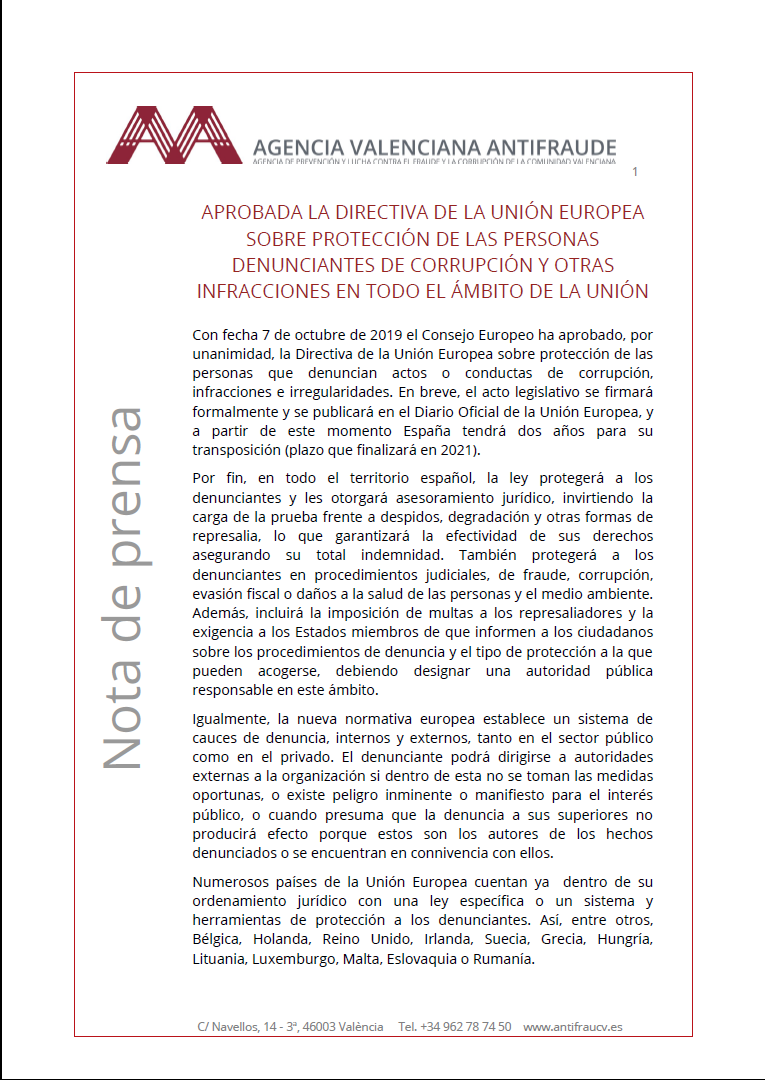
The action of the Valencian Anti-Fraud Agency pays special attention to the protection of whistleblowers. A complainant is considered, for these purposes, any natural or legal person who communicates facts that may give rise to the requirement of legal responsibilities.
The statute of the complainant will not be applicable when it is a false complaint or provides misrepresented or illicitly obtained information, in which case it will be filed, after hearing the complainant, with the pertinent legal warnings.
The Agency has established confidential procedures and channels for the formulation of complaints.
Without the need for a prior declaration or acknowledgment, good faith complainants receive legal advice in relation to the facts related to the complaint and their identity is guaranteed to be confidential.
The Valencian Antifraud Agency ensures that these people do not suffer, during the investigation or after it, any type of isolation, persecution or worsening of working or professional conditions, or any type of measure that implies any form of damage or discrimination.
In the event that the Agency becomes aware that the complainant has been the subject, directly or indirectly, of acts of intimidation or retaliation for having filed a complaint, it may take the corrective or reinstatement actions it considers, of which it will be recorded in the annual report. In particular, at the request of the complainant, the Agency may urge the competent body to transfer him to another position, provided that it does not prejudice his personal status and professional career, or urge the competent body to grant a permit for a specified time. with maintenance of remuneration.Likewise, the complainant may request from the Agency advice on the procedures that are brought against him as a result of his complaint.
In no case, the protection derived from the application of the statute of the complainant will exempt him from the responsibilities that he may have incurred for events other than those that constitute the object of the complaint.
The statute of the complainant is understood without prejudice to state regulation. In any case, when the Agency reports to the competent authority facts that may constitute a crime that have been reported by people who have availed themselves of this statute, it must expressly indicate it and make it manifest when it may concur, in its opinion, the existence of serious danger to the person, liberty or property of the complainant or the witness, the spouse or the person to whom he is linked by an analogous relationship of affection or the ascendants, descendants or siblings.

